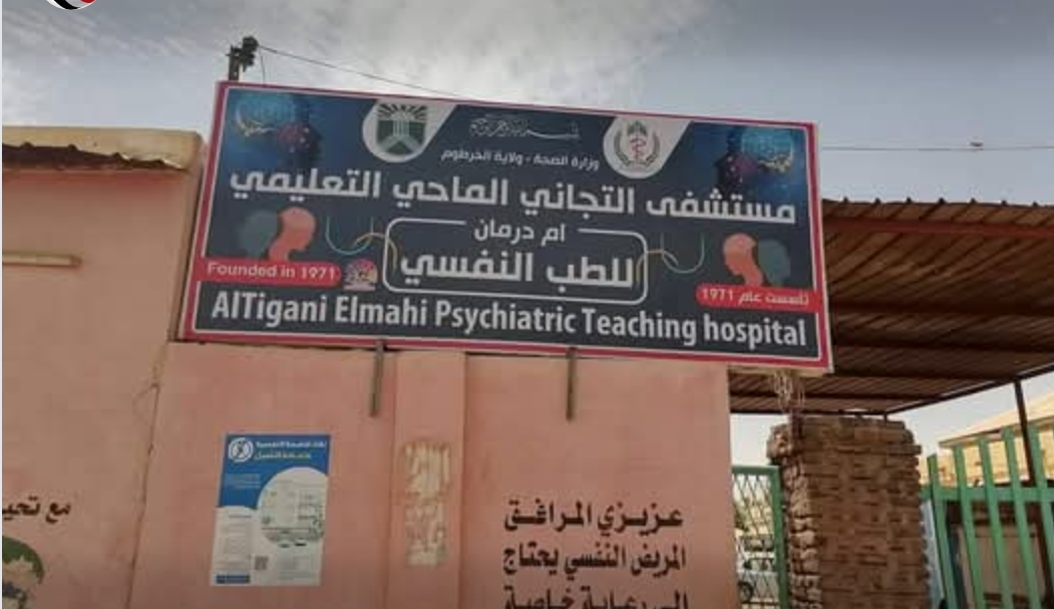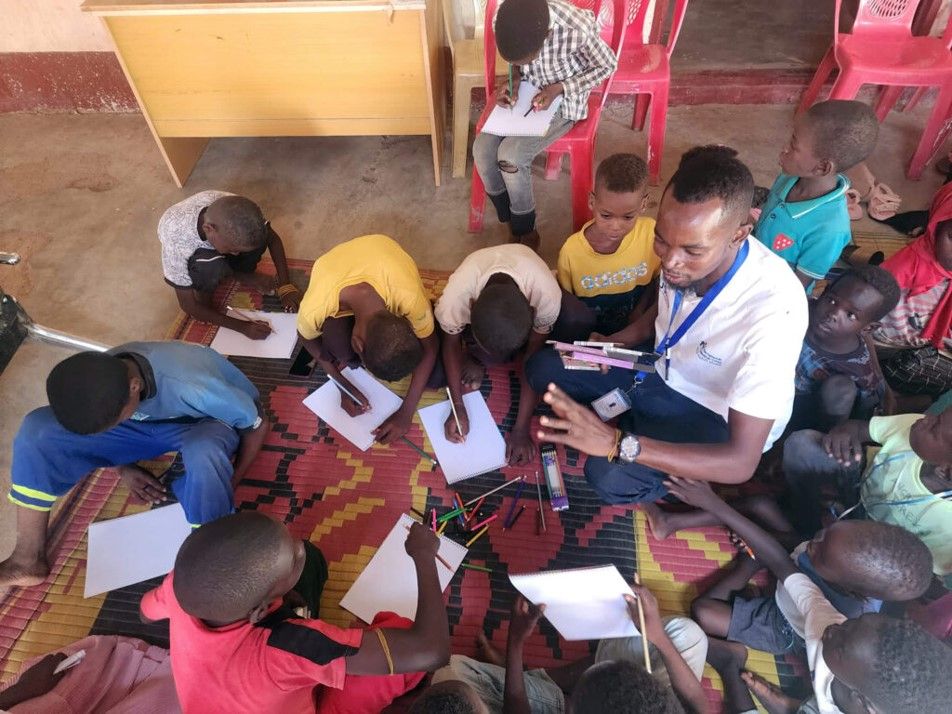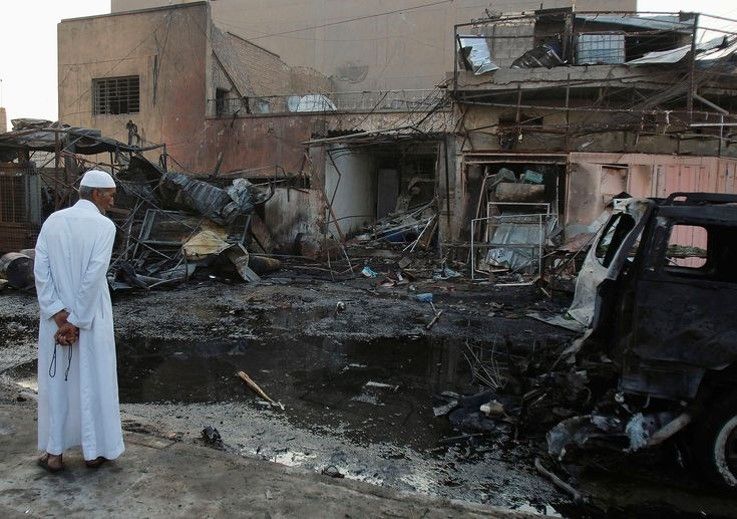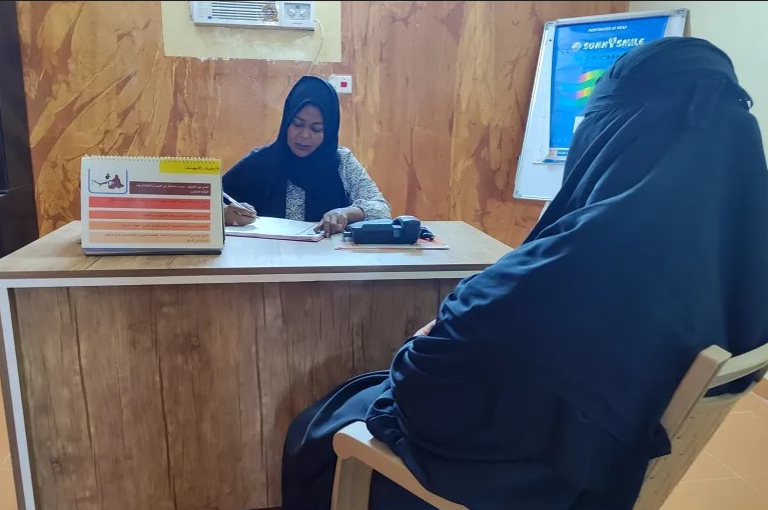Trigger Warning and Disclaimer: The following content includes personal and sensitive experiences. The views expressed are those of the author and do not necessarily reflect the positions of Andariya. We encourage you to engage with the piece in whatever way feels right for you. You can read our full editorial notice here.
Introduction
The war in Sudan, which has been raging since mid-April 2023, has left deep and devastating psychological scars on millions of civilians. Continuous violence, forced displacement, and the loss of property and loved ones have all contributed to worsening mental health crises and the emergence of new psychological disorders that were far less common before. Mental health experts warn that, without timely and appropriate intervention, these traumas could have severe and long-lasting consequences for entire generations.
Armed conflicts and wars are among the most significant factors that negatively impact the mental health of both individuals and communities. During wartime, people face immense psychological challenges that can lead to serious mental health issues ranging from anxiety and depression to post-traumatic stress disorder (PTSD) and other psychiatric conditions. These effects are not confined to the duration of the war itself but may surface and persist for many years after it ends.

Image expressing support - Source: Mental health organization on Facebook
Mental Health Institutions Crisis
Sudan's mental health system was fragile before the war. According to the National Mental Health Plan of Sudan, there were only 0.92 mental health workers for every 100,000 people, a deeply concerning statistic for a country with a population of 43 million. Sudan had only two psychiatric hospitals and 12 general hospital units, staffed by just 34 psychiatrists nationwide. Mental health services were also unevenly distributed, making access particularly difficult for those living in rural or conflict-affected areas.
Now, with all 12 psychiatric hospitals in Khartoum, Al-Gezirah, and Kassala closed due to the war, access to care has become nearly impossible. Many mental health professionals have fled or been displaced, leaving only 79 therapists across nine states. This devastating shortage has led to underdiagnoses, lack of treatment, and a complete failure to prioritize mental health needs within the broader humanitarian response.
On May 19, 2023, Al-Tijani Al-Mahi Psychiatric Hospital, the most renowned mental health facility in Sudan, was systematically looted and vandalized by the Rapid Support Forces (RSF), forcing it to cease operations. The attack sparked widespread outrage and later prompted the Governor of Khartoum to issue a directive in June 2025 to rehabilitate and reopen the hospital as part of broader efforts to support institutions damaged by the war.

Al-Tijani Al-Mahi Psychiatric Hospital — Source: Al-Hadath
Rising Cases of Mental Health Disorders
Recent reports have revealed a remarkable increase in the prevalence of mental health disorders in Sudan since the start of the war. According to the Director of the Mental Health Department in Al-Gezira State, the state recorded four cases of suicide and two attempted suicides in shelters, particularly among displaced people from Khartoum. In Red Sea State, one suicide case was reported, and drug use increased significantly among displaced persons and youth (aged 15 to 25) in shelters.
Statistics show that the prevalence of schizophrenia rose by 67.5%, depression by 86%, addiction by 33.5%, anxiety by 37%, bipolar disorder by 6.5%, other mental disorders by 7%, obsessive-compulsive disorder by 1%, epilepsy by 9%, and substance use disorders by 5% during the period from mid-April 2023 to July 2024. This surge reflects the magnitude of the psychological crisis Sudan is experiencing.
Prevalence of Mental Health Disorders in Sudan from Mid-April 2023 to July 2024
Impact of Direct Trauma: Violence and Rape
In an interview with clinical psychologist Huda Hashim, she pointed out that direct traumas, such as exposure to shelling, severe injuries, and sexual violence, including rape, are major causes of severe mental health disorders. International women's rights organizations have documented systematic rape, abduction, and enforced disappearance of girls, placing their families under unbearable psychological pressure. These traumatic experiences can lead to disorders such as Post-Traumatic Stress Disorder (PTSD), characterized by recurring and intrusive memories of the tragic event, nightmares, a strong sense of reliving the trauma, and severe anxiety when recalling the incident.
Men have also experienced humiliating treatment at armed checkpoints or within their homes, generating intense desires for revenge, reflecting the devastating psychological impact of these violations.

Image indicating PTSD – Source: Artificial Intelligence
The Mental Health of Children
Huda explains that children are among the most affected groups in armed conflicts, facing deep psychological traumas beyond their understanding and coping capacity. Witnessing violence, losing parents or friends, sudden displacement, and deprivation of a safe environment all contribute significantly to the deterioration of their mental health. Millions of children in Sudan have lost their homes, and their lives have been turned upside down, with an uncertain and threatened future.
Psychological trauma in children manifests in multiple forms, ranging from PTSD and recurring nightmares to difficulties in concentration and learning. Many live in a state of constant anxiety and fear, affecting their ability to sleep and feel safe. Some children may display aggressive behaviors, while others withdraw and refrain from play or social interaction, signs that warn of long-term effects on their psychological and social development if no intervention occurs.
The disruption of education is one of the greatest challenges facing Sudanese children. Millions of children have dropped out of school, exposing them to additional risks such as exploitation, gender-based violence, early marriage, child labor, and even recruitment into armed groups. This interruption in education not only exacerbates their psychological suffering but also threatens the future of an entire generation and hinders their ability to build better lives for themselves and their communities.
Amid crises, education emerges as a fundamental protection tool and a source of hope and recovery. Providing a safe and supportive learning environment can make a huge difference in the lives of children affected by war. When they have the opportunity to return to school, they can regain a sense of normal routine, interact with their peers, and acquire skills that help them cope with life’s challenges.
Schools offer a structured environment and daily routine that help children restore a sense of normalcy and reduce anxiety and distress. This routine provides children with security and stability, essential elements in a context dominated by chaos and uncertainty. Additionally, having trained teachers and school counselors can provide initial psychological support and identify cases that require specialized intervention.
Education also provides vital opportunities for children to interact with their peers, reducing feelings of isolation and enhancing their social recovery. Acquiring knowledge and skills can give them a sense of control over their future and strengthen healthy coping mechanisms. These factors contribute significantly to building psychological resilience, enabling children to overcome current challenges and work toward a better future.

Education helps improve children's mental health - Source: Ahmed Yaqoub
Osman’s Story
Osman, a 12-year-old boy whom I have known since my fourth year at university, is a child with Autism Spectrum Disorder. He lived in the Al-Jarafa area of Omdurman, where he had limited psychological and behavioral support before the war through individual sessions at a community center. However, after the outbreak of the war, these services completely stopped, and his family was forced to flee under continuous shelling, leading to a sharp deterioration in his psychological and behavioral condition.
Osman began experiencing frequent anger outbursts, complete withdrawal from his surroundings, and lost the ability to express his needs as he once did. His situation clearly reflects how the absence of specialized care during crises deepens the suffering of children with special needs, who are often overlooked in humanitarian response plans despite being among the most in need of continuous care and specialized psychological support.
Hassan’s Story
Hassan (a pseudonym), owned an electronics shop on Al-Hurriya Street in Khartoum, along with his home in Khartoum Bahri. he faced devastating losses when the war began as his shop was looted, and home was robbed and set on fire. He tried to rebuild his life by moving to Al-Gezirah State and opening a small business with the remaining money he had. Unfortunately, his hope was short-lived, as his shop was robbed again after Rapid Support Forces entered the area. These repeated losses had a severe psychological impact on him, leading to acute psychological trauma, and he passed away shortly afterward.

Man standing on the rubble of his home, showing visible shock – Source: Al Jazeera
Anwar's Story
Anwar (pseudonym) is a teenage girl from Khartoum Bahri who was a victim of rape committed by members of the Rapid Support Forces (RSF) in the early months of the war. Anwar was returning home after going to the market when two RSF members followed her home, raided the house, assaulted her, and threatened to kill her mother's young son. This crime did not stop at physical violence; it also led to severe psychological effects and social rejection from those closest to her.
Anwar says she did not receive any medical support, and shortly after the incident, she noticed a change in her family’s behavior toward her. Her family initially did not accept what had happened and treated it as a disgrace affecting the family’s honor, which led to Anwar’s isolation and intensified her feelings of guilt and shame, despite being the victim.
She was able to begin psychological support sessions for herself and her family, with the primary goal of redefining misconceptions about honor and sexual assault, building a foundation of understanding and acceptance within the family, and helping her overcome the trauma she had endured. She responded positively to the treatment within two months.
Types of Mental Health Support Provided
Mental health support in Sudan is diverse, covering several critical areas to respond to the current crisis. These efforts can be categorized into different levels aimed at providing both immediate and long-term care for those affected.
Psychological First Aid
Huda Hashim emphasized that psychological first aid is crucial immediately after a traumatic event. These measures aim to provide a safe environment for the child or survivor and offer support and self-care. This includes creating a secure space away from scenes of destruction, comforting the child to provide safety and affection, and building a trusting and respectful relationship. These initial steps help the child gradually regain self-awareness and protect them from the effects of trauma.
Specialized Psychological Therapy
For cases exhibiting severe or clear symptoms of mental illness, specialized psychological therapy is provided. This includes individual or group sessions to help refugees and displaced persons express their emotions and process the trauma they have experienced. These sessions target conditions such as post-traumatic stress disorder (PTSD), depression, and severe anxiety.
Psychological Awareness
Psychological awareness is a fundamental pillar in addressing the effects of war. It aims to educate individuals about mental health and provide information on how to cope with psychological challenges that may arise during conflict. This awareness should be provided continuously in displacement camps and gathering areas to enable people to recognize symptoms and seek help.
Psychosocial Support
Psychosocial support helps mitigate both the immediate and long-term risks and consequences on the mental health and overall well-being of individuals, families, and communities. This includes recreational activities and community strengthening initiatives that help rebuild social bonds and reduce feelings of isolation and fear.
The humanitarian disaster in Sudan, including the mental health crisis, requires an urgent and comprehensive international response. The United Nations and international relief organizations are urging global action to protect and support civilians affected by the war.
Humanitarian Support
Amid the near-total collapse of Sudan’s healthcare system, humanitarian initiatives have emerged as a beacon of hope in the dark tunnel of war. These efforts strive to provide food, medical, and psychological assistance to those affected, with a focus on promoting stability in devastated areas and creating safe environments for displaced persons and affected communities.
Community support networks and local initiatives rely on a long-standing tradition of solidarity and mutual aid, playing a central role in mitigating the psychological and humanitarian impact of the war. Among these initiatives is (Tamnouna), which uses social media to provide mental health support content; Emergency Rooms, a community-led response offering medical, psychological, and food assistance; and the Art Therapy Initiative, which provides group psychological therapy sessions and artistic activities for children and girls affected by trauma. Al-Ahfad Center for Psychological Trauma at Al-Ahfad University has also contributed by offering free psychological consultations and training students to provide psychological first aid over the phone.
Meanwhile, the Sudan for Peace Platform, established in May 2023, brings together 47 women-led networks and initiatives, supporting communities affected psychologically and socially, with a special focus on women in conflict zones.
International organizations have also stepped in to fill this large gap. The World Health Organization (WHO) launched mental health response campaigns, highlighting a sharp rise in depression and PTSD, especially among children and women, and calling for urgent international support for Sudan’s mental health sector. Project HOPE, in collaboration with its Sudanese counterpart NADA, trained over 1,200 healthcare workers and 14,000 community members in psychological first aid, while also providing direct and remote psychological support sessions.
UNICEF has also played a crucial role, offering psychosocial support to more than 250,000 children through the establishment of over 850 child-friendly safe spaces by early 2024. UNICEF emphasized that psychosocial support for displaced children has become an urgent necessity, given the prolonged duration of the war and the growing trauma.

Counseling and psychological support clinics in Al-Gezira State – Source: Al Jazeera Network
Conclusion
Sudan faced a severe shortage of mental health services even before the outbreak of war in April 2023, as the healthcare system was fragile and under-resourced. The country had no more than 60 officially registered mental health professionals, equivalent to one psychologist for every 2.5 million people, compared to the global average of 25 psychologists per 100,000 population. This stark gap reflects the structural deficiency in this critical sector.
With the escalation of the conflict, the crisis worsened unprecedentedly. More than 67% of hospitals in the country became non-functional due to bombing and direct clashes, including 58.5% in Khartoum and 56.2% in Al-Gezira State. This led to an almost total collapse of both mental and general healthcare services. In addition, a large number of doctors and mental health specialists were displaced to safer states or left the country entirely, creating a severe shortage of qualified medical personnel.
Weak funding, communication difficulties in conflict zones, and disrupted supply chains further hindered the provision of mental healthcare to millions of affected citizens, particularly the most vulnerable groups such as women, children, and the elderly.
These factors place Sudan among the countries with the largest gaps between actual mental health needs and available services, in the midst of a compounded humanitarian disaster requiring urgent and sustainable interventions at both national and international levels.
The mental health crisis in Sudan is a direct and severe consequence of the ongoing war, demanding an immediate and sustainable response. The devastating impact on the mental health of millions, especially the most vulnerable groups such as children and women, requires coordinated local and international efforts.
Humanitarian initiatives on the ground, despite enormous challenges, offer a glimmer of hope in these harsh conditions. However, full recovery cannot be achieved without ending the conflict, providing adequate funding, rebuilding healthcare infrastructure, and integrating mental health services into all relief and development programs. Attention to mental health is not a luxury but an essential necessity to ensure a better future for Sudan’s coming generations.